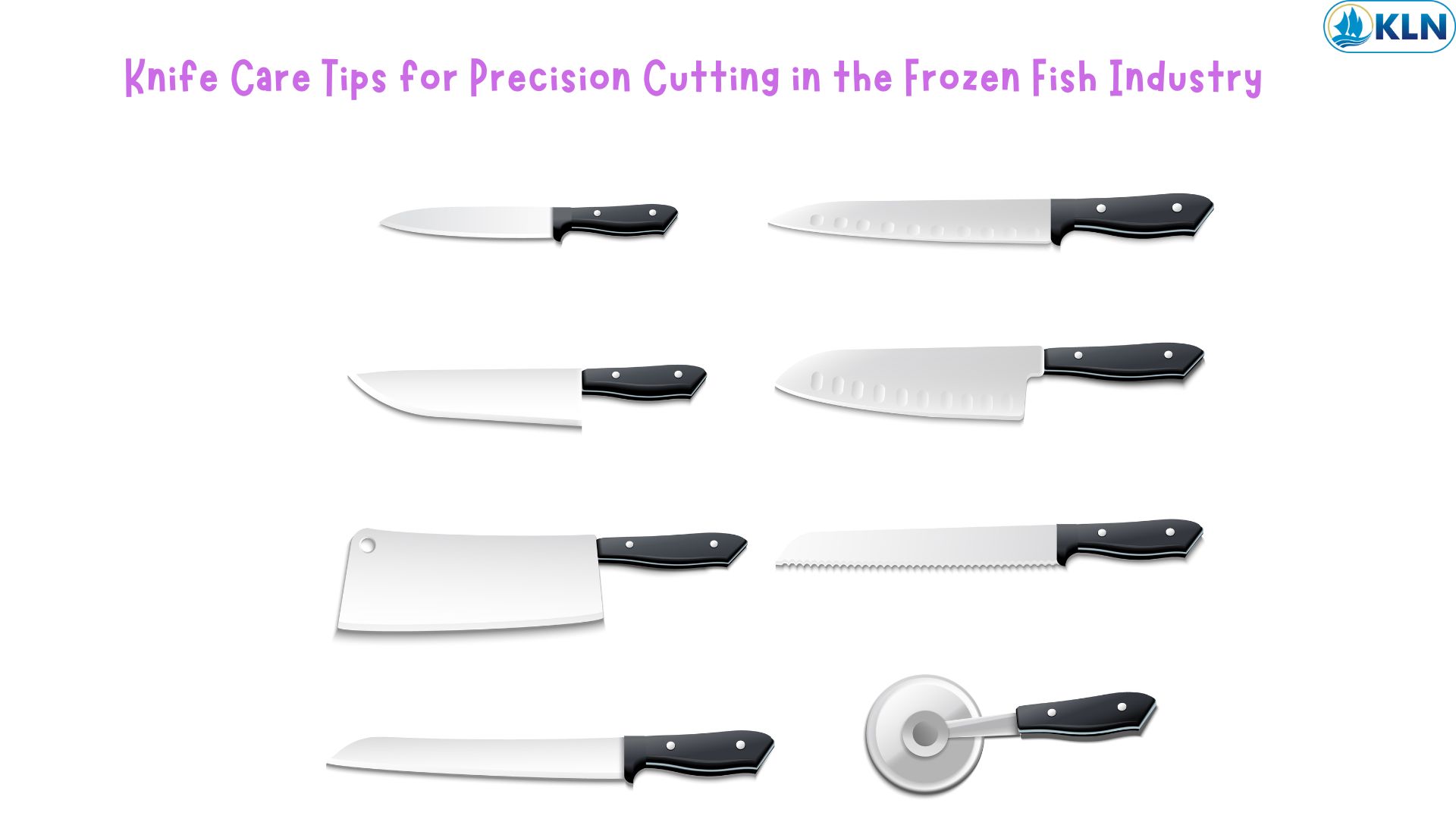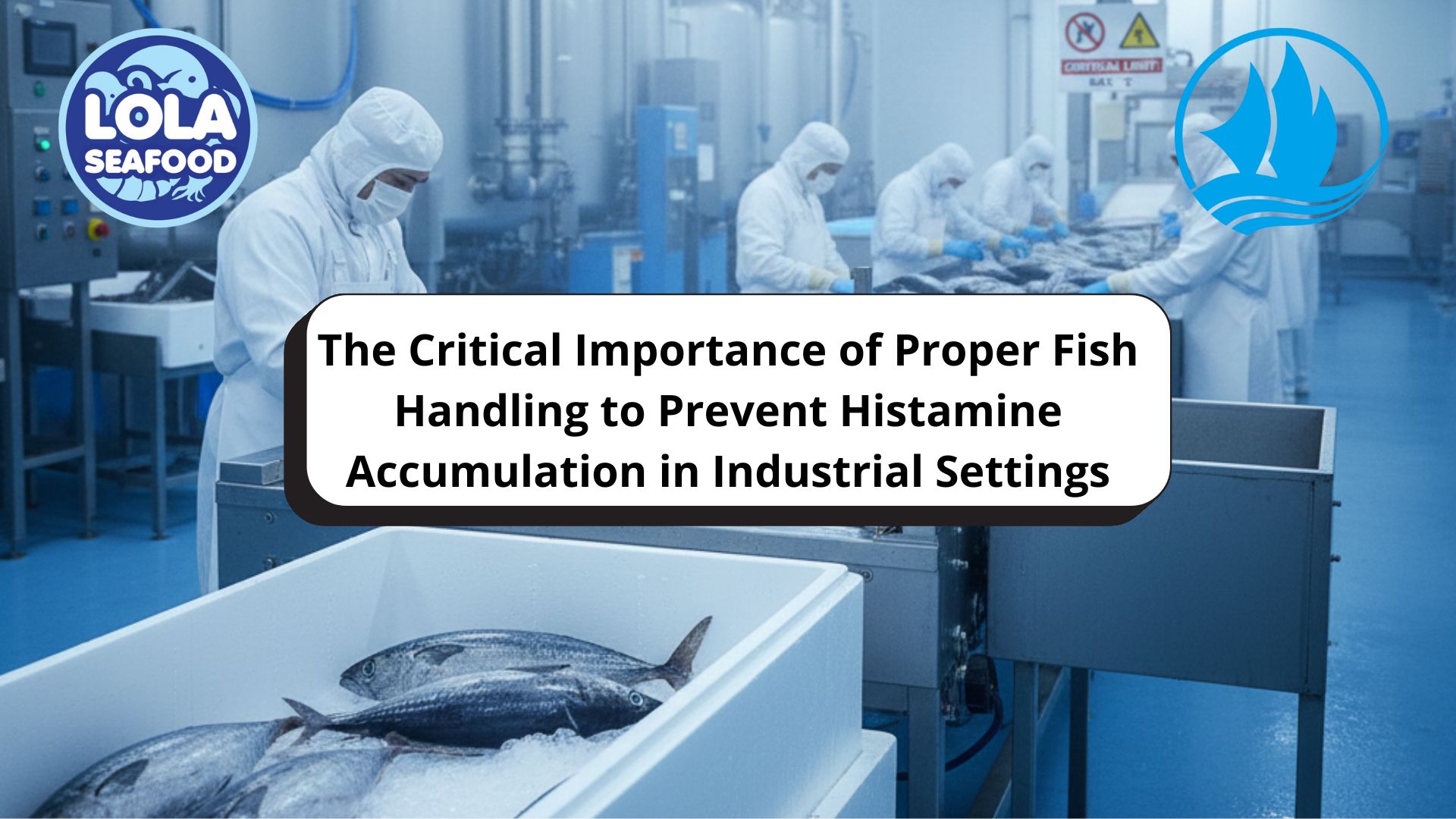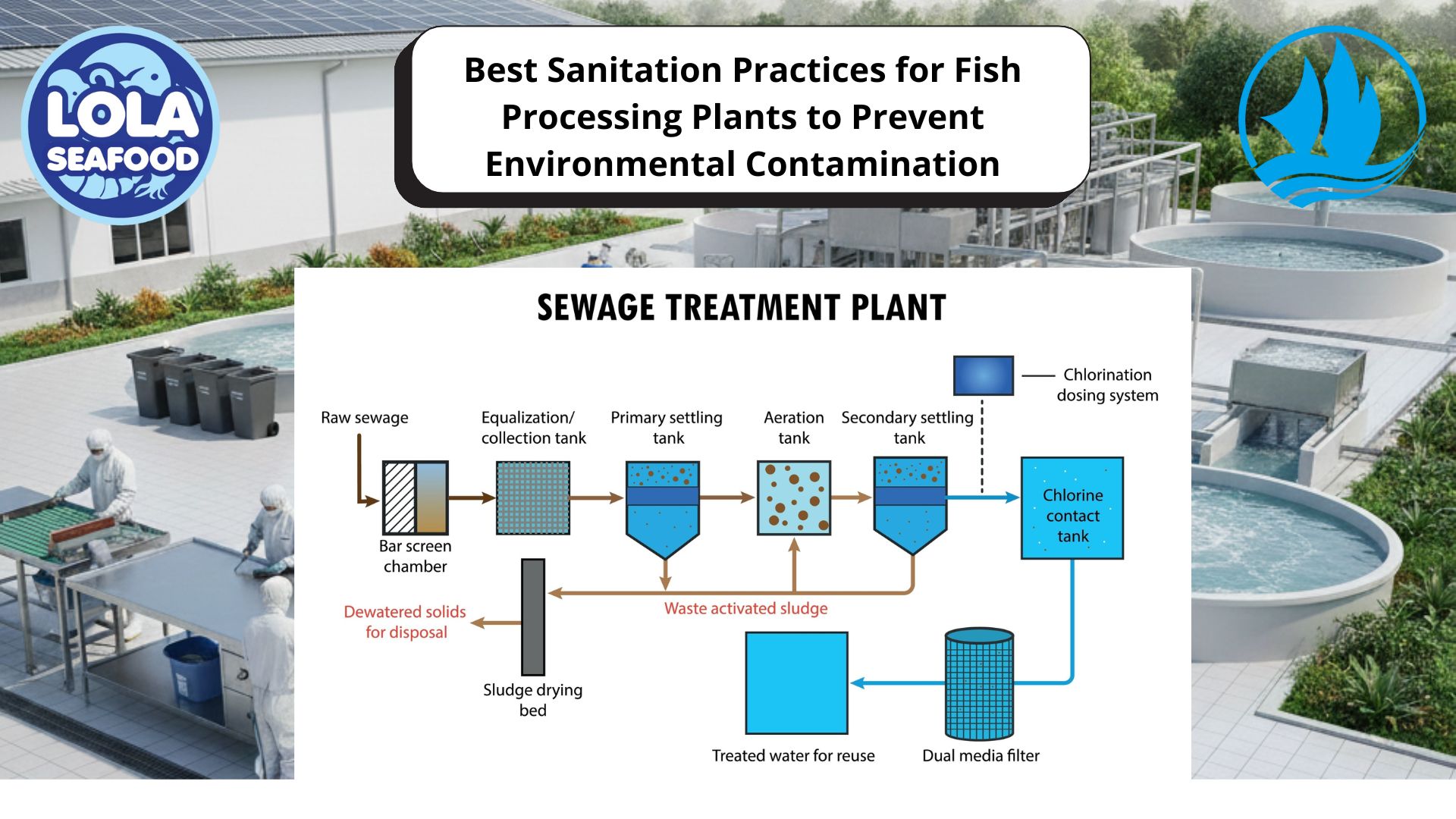Knife Care Tips for Precision Cutting in the Frozen Fish Industry
By. Najih - 15 Jul 2024
In the frozen fish industry, maintaining sharp knives is essential for achieving precise cuts. This article explores crucial tips for knife care to ensure efficiency and quality in fish processing.
1. Importance of Sharp Knives
Sharp knives are crucial for ensuring clean and precise cuts in fish filleting and preparation. They not only enhance efficiency but also contribute to the overall quality of the final product.
2. Selecting the Right Knife
Choosing the appropriate knife for the task is fundamental. Different knives, such as fillet knives and boning knives, are designed for specific purposes and ensure better control and accuracy during cutting.
3. Regular Sharpening
Regular sharpening is essential to maintain the sharpness of knives. Use a sharpening stone or honing steel to keep the blade edge sharp, ensuring consistent performance and reducing the effort required for cutting.
4. Proper Knife Storage
Proper storage helps maintain the sharpness of knives. Store knives in a knife block, on a magnetic strip, or in a sheath to protect the blade from damage and to prevent accidents.
5. Cleaning and Drying
Clean knives immediately after use with mild soap and water, and dry them thoroughly to prevent corrosion. Avoid leaving knives in water or the dishwasher, as prolonged exposure can dull the blade and cause damage.
6. Safe Handling Practices
Handle knives safely to prolong their lifespan and prevent accidents. Always use knives on stable surfaces, avoid cutting hard surfaces like bones or frozen fish, and store them out of reach of children.
7. Regular Inspection and Maintenance
Periodically inspect knives for any signs of wear or damage, such as nicks or bent blades. Address issues promptly through sharpening or professional maintenance to ensure optimal cutting performance.
8. Training and Skill Development
Provide training for personnel on proper knife handling and maintenance techniques. Educated staff can maximize efficiency and safety while minimizing the risk of injuries in the workplace.
9. Investing in Quality Knives
Invest in high-quality knives designed for commercial use in the fish processing industry. Quality knives are durable, maintain sharpness longer, and contribute to consistent, high-quality cuts.
10. Continuous Improvement
Continuously seek feedback and evaluate knife performance to identify areas for improvement. Adapt knife care practices based on industry best practices and technological advancements for enhanced efficiency and productivity.

The Legal Shark Value Chain: Identifying Critical Control Points for Cost Efficiency and Value Enhancement from Catch to Consumer

Global Trust Across Three Segments: How the HACCP System Ensures Premium Quality for Demersal, Pelagic Fish, and Legal Shark Product Utilization
.jpg)
Green Investment, Profitable Harvest: How Sustainability Practices Reduce Operating Costs in Fish Fillet Processing Plants (Skin-On and Skin-Less)
 in Meeting Global Protein Demand Sustainably.jpg)




